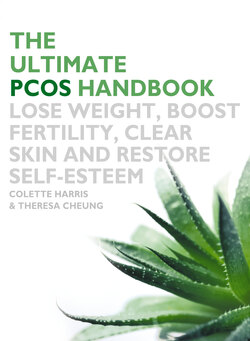Читать книгу The Ultimate PCOS Handbook - Theresa Cheung - Страница 32
PCOS AND PREGNANCY
ОглавлениеDespite fertility problems, 70 per cent of women with PCOS do conceive naturally. It might be logical to assume that PCOS is ‘cured’ or goes away when you get pregnant – after all, you’ve ovulated – but unfortunately this isn’t the case. ‘Although some women with PCOS find that their post pregnancy cycles get more regular, there isn’t any evidence to suggest that pregnancy cures PCOS,’ says PCOS expert Adam Balen. ‘What we do know, though, is that research does seem to indicate that a PCOS pregnancy is at greater risk.’ While it may seem scary to read about the risks, knowing about them means you can deal with them in a proactive and positive way.
Research6 suggests that women with PCOS are more likely to miscarry, possibly due to excess weight, which is itself associated with an increased risk of miscarriage. It could also be due to the higher LH concentrations in PCOS, which could damage egg quality.
PCOS may also increase the risk of gestational diabetes7 (diabetes that occurs during pregnancy) due to weight issues and/or insulin resistance, and this ups the risk of hypertension and the need for a Caesarean section during labour.
Pregnant women with PCOS who are insulin resistant are also at an increased risk of hypertension or high blood pressure.8 Pregnancy-induced hypertension carries with it the risk of growth retardation in the baby and damage to the nervous system and kidneys in the mother.
We know this all sounds alarming, but do remember that every pregnancy carries risks, whether you have PCOS or not. And if your doctor is aware, and works with you to monitor your pregnancy closely, you should pick up any early warning signs.
